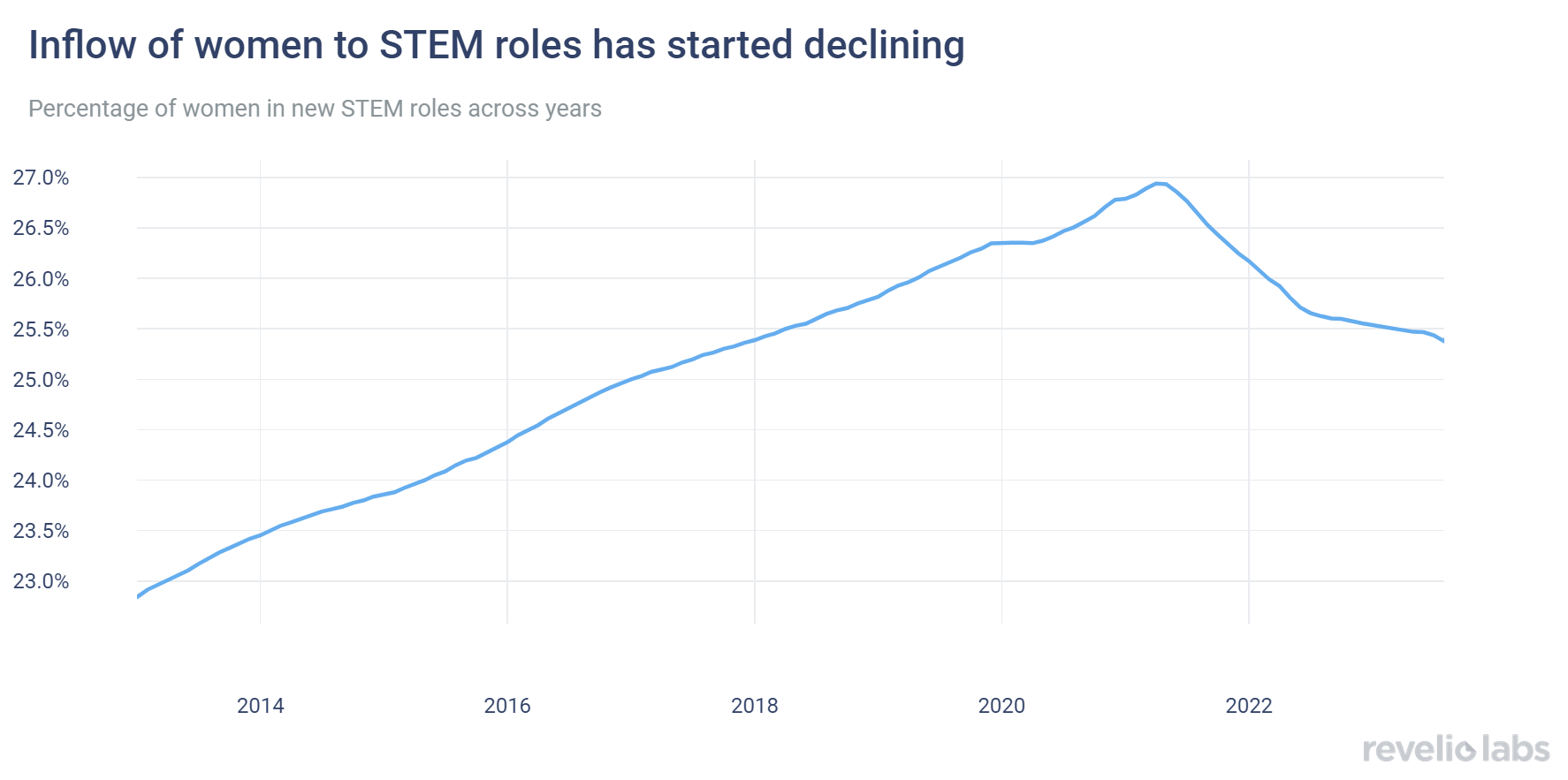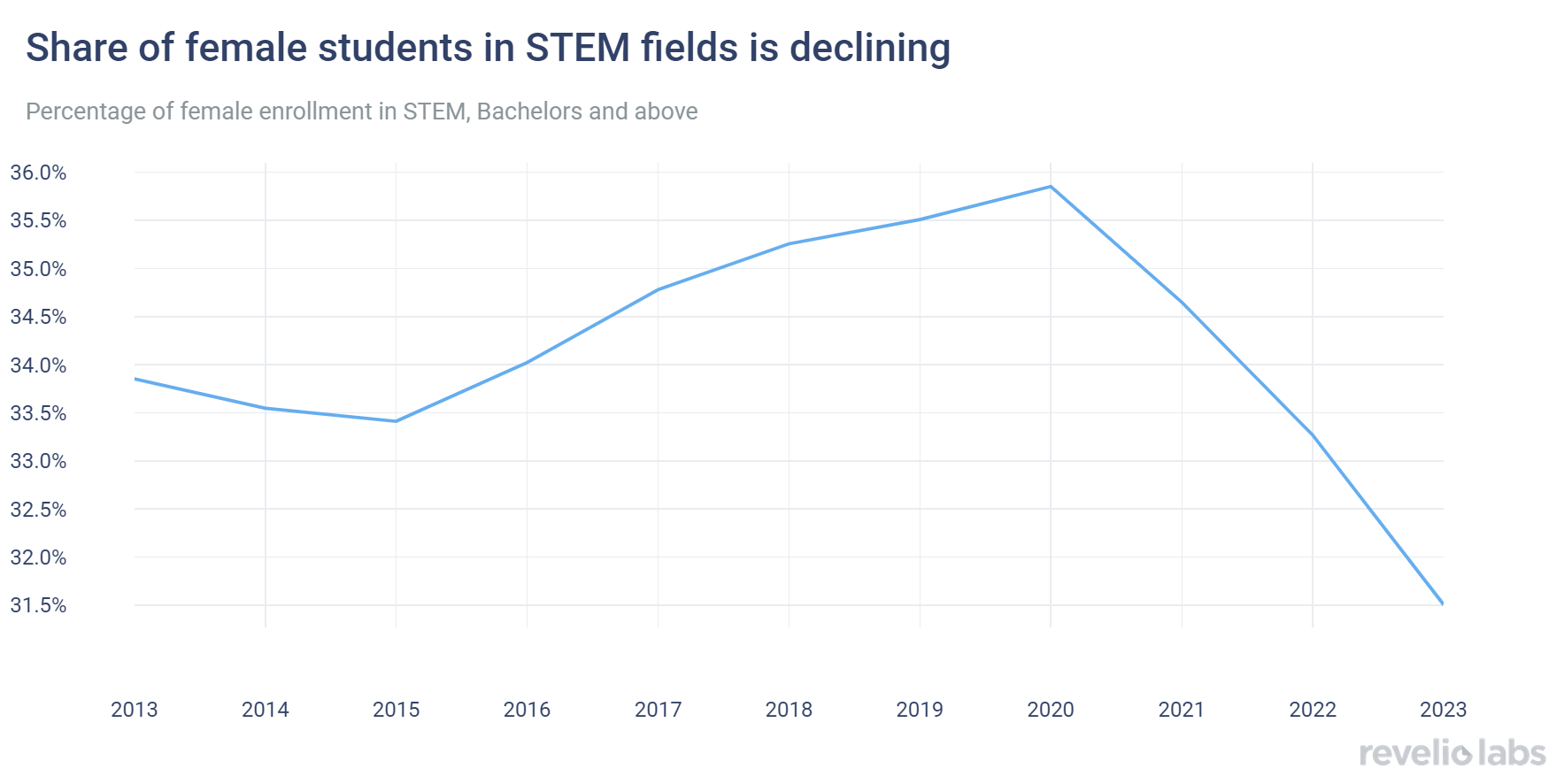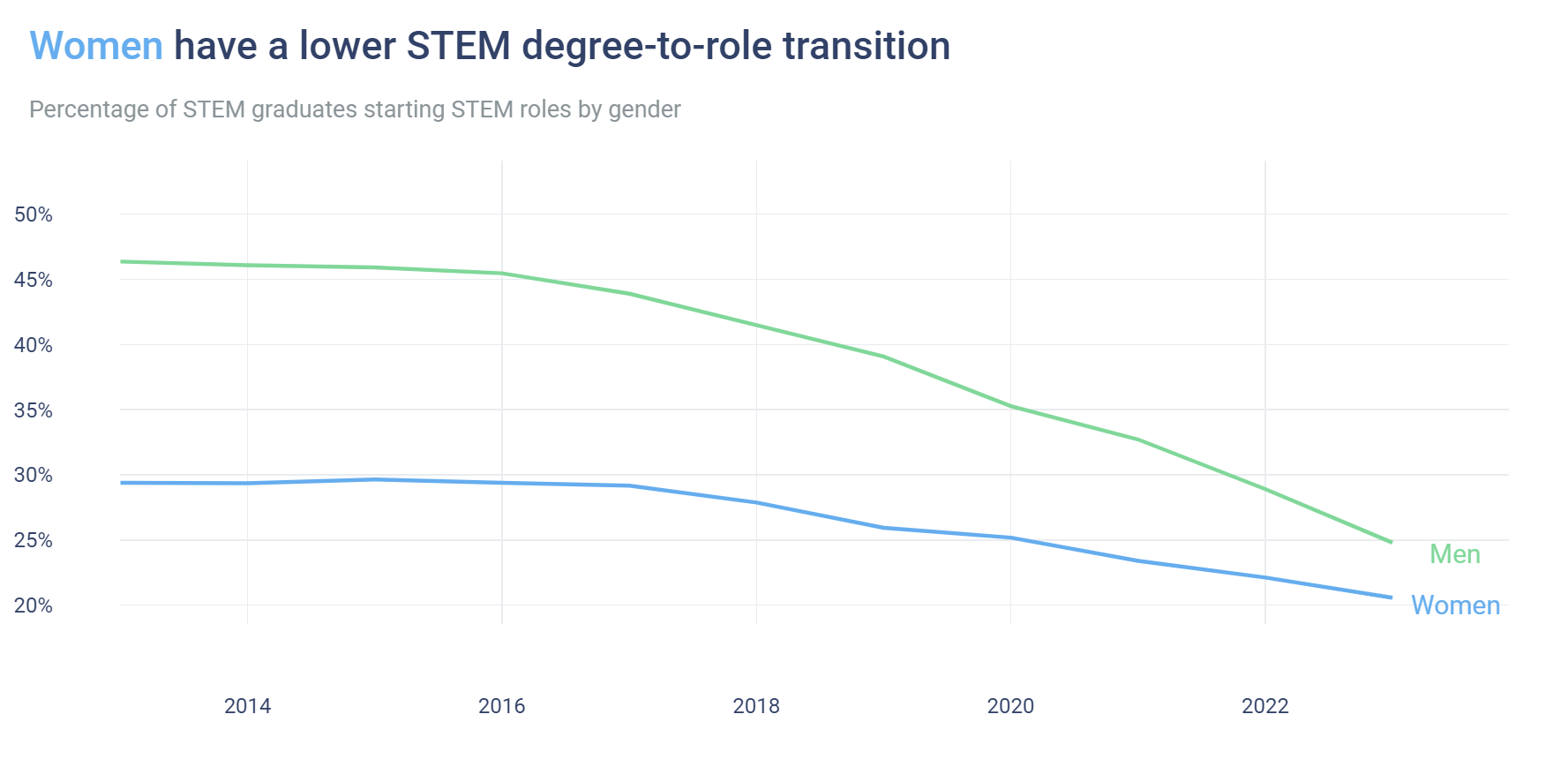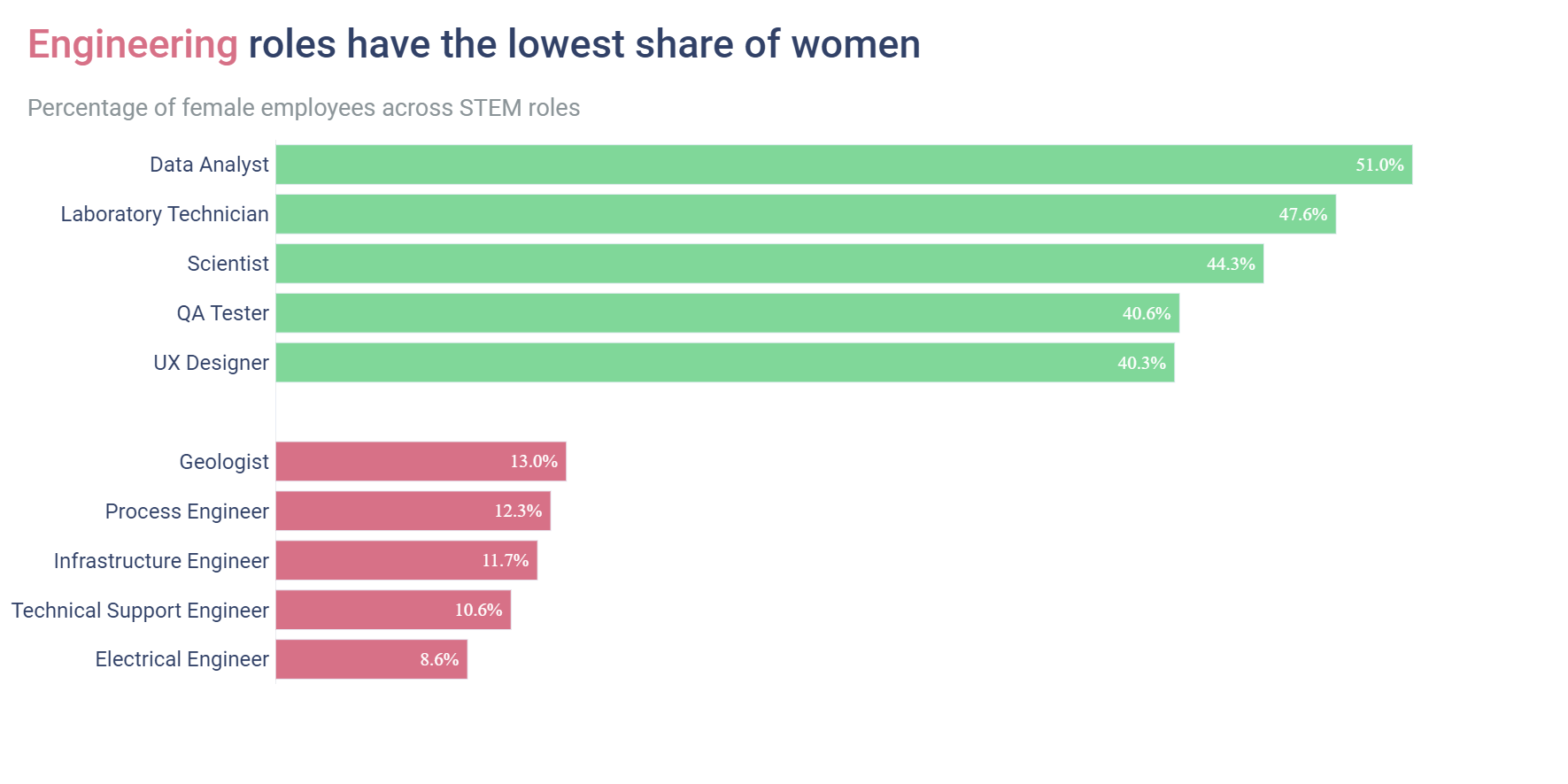Is the Talent Pipeline for Women in STEM Broken?
Years of gains for women in STEM might be in trouble

After years of progress, the share of women in STEM roles started declining.
Women's enrollment in STEM majors has stagnated since 2018 and started declining during the pandemic.
Engineering is significantly lacking in female representation, with electrical engineering being the most skewed. Astonishingly, for every ten electrical engineers, there is just one woman.
Over the past few decades, numerous efforts have been directed towards boosting female participation in STEM fields, and for good reasons. STEM has long been a driving force behind innovation and economic growth, and it's clear that we need all hands on deck to keep moving forward. Additionally, studies have shown that occupational choice plays a crucial role in the gender pay gap, making it all the more important to address the underrepresentation of women in STEM fields.
Despite the steady progress achieved over the past years to increase female representation in STEM roles, recent HR data suggests that this trend has taken a troubling turn. The decline in women's participation in STEM may be partly attributed to the broader decline in female workforce participation brought on by the pandemic. This setback raises concerns, as a continued decline in women's representation in STEM could further exacerbate the gender pay gap in the years to come.


More worrisome, however, is the decline in the share of female students currently majoring in STEM fields. Enrollment in STEM fields started to stagnate in 2018 and eventually started declining during the pandemic. This decline in the supply of female STEM students is expected to make it even more challenging to increase female representation in STEM roles.
Sign up for our newsletter
Our weekly data driven newsletter provides in-depth analysis of workforce trends and news, delivered straight to your inbox!


The decline in female representation in STEM is magnified by the fact that women are increasingly less likely to transition into STEM roles after graduating with a STEM degree. Although there has been a sharper decline in the number of male STEM graduates continuing their careers in STEM roles, only one in four female STEM graduates continue to have a career in STEM. This underutilization of talent not only perpetuates the gender pay gap, it limits innovation and growth.


The underrepresentation of women in engineering is particularly striking. Electrical engineering is the most glaring example: for every ten electrical engineers, only one is female. This disparity is in stark contrast to the gender balance observed in data and scientific roles, where HR data shows gender representation almost at parity.




